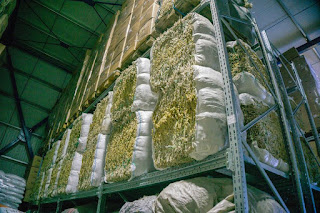It was in 2011 that Demetri Chriss, chief operating officer of Tuvunu—a Greek producer of all-natural beverages, traveled to Trace, near the Greco-Turkish border.
Demetri envisioned a future in which people from the farming communities of Thrace cultivated their land to produce Sideritis for a new, all-natural bottled version of the drink that everyone’s grandmother calls a cure-all. Sideritis (or Greek mountain tea) grows wild in the mountainous areas of Greece. For centuries, it has been used to prepare a hot infusion, a folk remedy for winter colds and sore throats.
Those mountainous villages of Thrace are home to a small community, the Pomaks, Greek Muslims who speak a local Slavic dialect and who, until 1993, were subject to discriminatory policies that barred them from leaving their villages after sunset or having visitors from outside the area without authorization. Now, most of the local men are working at shipyards in Germany.
It still is an extremely poor area that is mostly known for the farming of tobacco, a crop that is under increasing threat from diminishing subsidies and health issues.
Now, farmers gather a large number of seeds from each crop they produce and, along with Tuvunu agronomists, provide new Sideritis farmers both with the plants and the expertise needed for them to obtain optimal results from the very beginning.
The factory receives the dried Sideritis. Local honey and freshly sqeezed lemons from southern Greece are put with the Sideritis in a 17,000-liter tank containing warm water, essentially replicating the way Sideritis has been traditionally boiled in homes around Greece since antiquity, but on much larger scale.
Gathering wild Sideritis plants is strictly prohibited by law and Tuvunu refuses to accept any plants that cannot be traced to a certified grower in order to conserve the wild flora of the species.
Some women have gone from being unemployed to becoming an employer themselves: they hire men to hoe the fields. The cultivation of Siteritis have made a number of women financially independent and that is a tremendous leap forward for women, who until recently were expected to stay at home in their predominantly patriarchal communities.



No comments:
Post a Comment